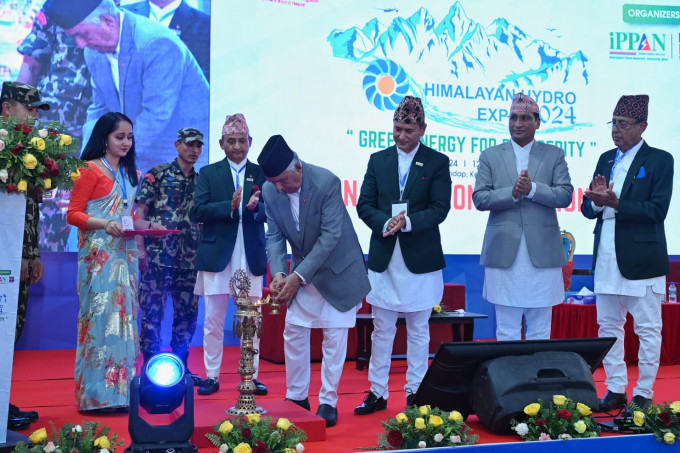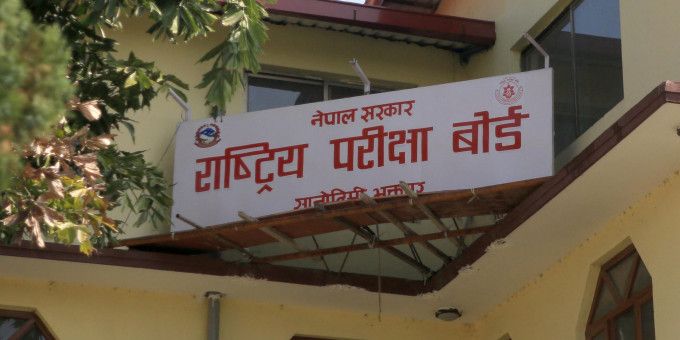Scientists have declared the Hindu Kush Himalaya, one of the most biodiverse regions on Earth, a ‘biosphere on the brink’ as a major global meeting of biodiversity experts opens in the Nepalese capital, Kathmandu.
The International Centre for Integrated Mountain Development (ICIMOD) issued the call as over 130 global experts arrived in Nepal for the Third Lead Authors meeting of the IPBES nexus assessment, which examines the linkages between food and water security, health, biodiversity, and climate change.
Researchers at the International Centre for Integrated Mountain Development (ICIMOD), which is hosting the meeting, describe the speed and scale of losses in nature and habitat in the Hindu Kush Himalaya region, which stretches 3,500km and spans eight countries, as catastrophic. “It is almost too late,” Deputy Director General Izabella Koziell told delegates to the IPBES meeting.
“Four of the world’s 36 global biodiversity hotspots are in this region. 12 of the global 200 eco regions, 575 Protected Areas, 335 important bird areas, those figures speak for themselves. Yet we are in an accelerating crisis, despite the efforts of everyone here and many in the international community. 70% of the original biodiversity has been lost over the last century. And yet 85% of mountain communities remain dependent on this biodiversity, for food, water, flood control and cultural identity.”
“The declines in nature across this region,” says IPBES author and ICIMOD Ecosystems Specialist Sunita Chaudhary, “are so advanced and accelerating so fast they now pose a threat to the lives of not just animal and plant life, but also human societies.”
241 million people live in the Hindu Kush Himalaya region: 31% of whom are food insecure and half of whom face some form of malnutrition.
“This is a region that must be urgently prioritised for investment – to fund the fight to reverse nature loss and species extinction. Worldwide we’re seeing a huge uptick in investments in ecosystem restoration and a growing recognition of the role that nature plays in human survival. We must ensure that funding to the Hindu Kush Himalaya rises at an exponential rate before these fragile and crucial ecosystems collapse, by building nature into all investment and action. And we must accelerate policy, institutional and market reforms to make this happen. And also push for much more rapid increase in integrated global finance, especially for high value and vulnerable regions like the HKH.”
Chaudhary, with ICIMOD colleagues Abid Hussein and Nakul Chettri, are among the experts contributing to the nexus assessment report, whose final Lead Authors meeting will be held from 5-9 February at the regional intergovernmental centre’s headquarters in Kathmandu. The meeting is followed by a meeting to advance a summary for policymakers from 10-11 February.
This is the first time an IPBES assessment meeting is being held in South Asia and builds on the close working relationship between the Secretariat and ICIMOD. The mountain development centre has been an active and trusted partner to the global process since its foundation in 2012, operating as an Observer to the global process and contributing proactively to the past and ongoing assessments including the iconic Global Assessment, Regional Assessment for Asia and Pacific, Scenarios and Models, Pollinators, pollination and food production and Transformative change assessment among others.
“We are honoured that IPBES has chosen ICIMOD as the host for its first lead authors meeting in South Asia,” commented Izabella Koziell, Deputy Director General.
“We see this as recognition of the organisation’s sustained commitment to science diplomacy about this extraordinarily rich and fragile zone over the past 40 years. But more importantly, of the outsized contribution mountains in general and the Hindu Kush Himalaya in particular play as refuges of biodiversity, and the unprecedented risks now posed to these places and species.”
Mountains cover 22% of Earth’s land surface but hold 50% of the world’s global biodiversity hotspots. Given mountains’ acute vulnerability to climate change, ICIMOD researchers have called for IPBES to consider a dedicated Global Mountains assessment.
READ ALSO:









